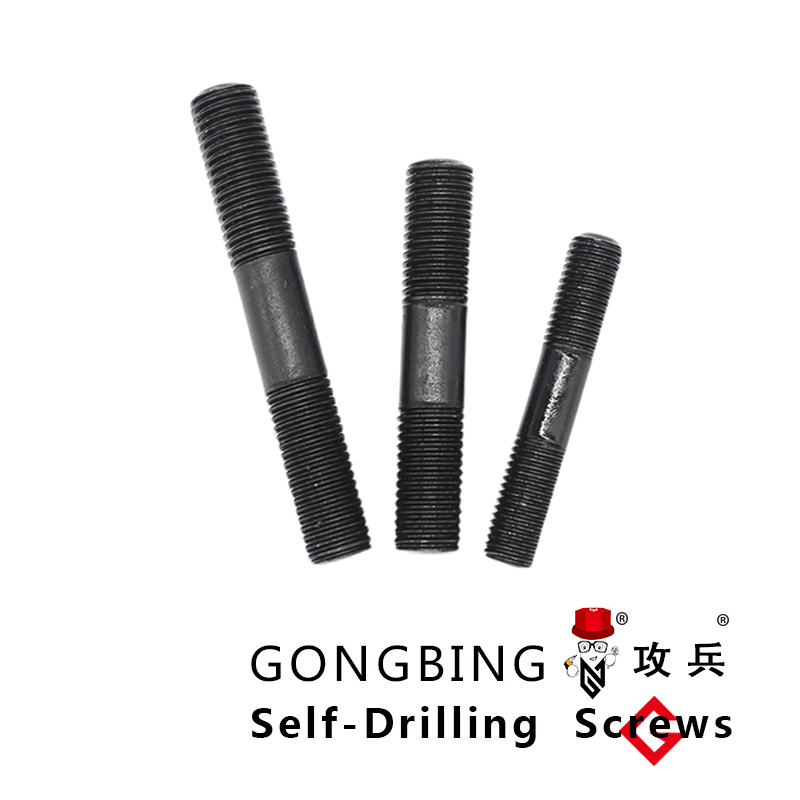washer head machine screws
Understanding Washer Head Machine Screws Features, Applications, and Advantages
Washer head machine screws are a versatile and widely used fastener in the engineering and manufacturing industries. These screws are characterized by their unique head design that includes an integral washer, allowing for improved load distribution and enhanced clamping capabilities. This article will explore the key features, applications, and advantages of washer head machine screws, providing insights into why they are an essential component in various mechanical assemblies.
Features of Washer Head Machine Screws
Washer head machine screws feature a distinctive head that is broad and flat, resembling a washer. This design serves multiple purposes
1. Load Distribution The wide surface area of the washer head helps to distribute the load across a larger area, reducing the risk of damage to the parts being fastened. This is particularly beneficial when working with softer materials that may be prone to deformation or cracking.
2. Reduced Marring The flat design minimizes the risk of marring or scratching the surface of the material being fastened. This is important for applications where aesthetics matter, such as in visible parts of electronic devices or appliances.
3. Improved Grip Many washer head screws come with a textured or serrated surface beneath the head. This feature enhances grip and ensures a more secure fit, thereby reducing the likelihood of loosening due to vibrations or mechanical stress.
4. Variety of Materials Washer head machine screws are available in various materials, including steel, stainless steel, brass, and plastic. The choice of material depends on the specific requirements of the application, such as corrosion resistance, strength, and environmental factors.
Applications of Washer Head Machine Screws
These fasteners find applications in a vast array of industries, owing to their adaptability and reliability
washer head machine screws

2. Automotive In the automotive industry, these screws are used for assembling parts such as panels, brackets, and housing for components. Their ability to withstand vibrations makes them ideal for this application.
3. Construction In construction and structural applications, washer head machine screws are essential for fastening wood, metal, and composite materials. Their load distribution properties are particularly valuable in ensuring the integrity of structures.
4. Appliances Household appliances often utilize washer head screws for assembly, providing a neat finish while ensuring that components are securely attached.
Advantages of Using Washer Head Machine Screws
There are several advantages to using washer head machine screws in various applications
1. Enhanced Performance The integrated washer design leads to better load distribution, reducing the risk of material fatigue and failure over time.
2. Ease of Installation Washer head screws can often be installed quickly and efficiently, making them desirable for both manual and automated assembly processes.
3. Versatility Their availability in a range of materials and sizes allows washer head screws to be utilized in diverse applications across different industries.
4. Cost-Effectiveness Given their durability and long-lasting performance, washer head machine screws can be a cost-effective solution, yielding savings on maintenance and replacement.
Conclusion
Washer head machine screws are an indispensable fastening solution that delivers strength, resilience, and efficiency. Their innovative design ensures that they meet the rigorous demands of various industries, from electronics to automotive and construction. Understanding their features, applications, and advantages can help engineers and designers make informed choices about their fastener needs, ultimately leading to better product performance and longevity. Whether you are involved in manufacturing or construction, acknowledging the role of these screws can enhance the reliability of your assemblies.
-
Weatherproof Plastic Expansion Anchors for OutdoorNewsJun.06,2025
-
Sustainability in the Supply Chain: Eco-Friendly TEK Screws ProductionNewsJun.06,2025
-
Load-Bearing Capacity of External Insulation FixingsNewsJun.06,2025
-
Double Head Bolts: Enhancing Efficiency in Industrial MachineryNewsJun.06,2025
-
Corrosion Resistance in Chipboard Screws: Coatings for Wholesale DurabilityNewsJun.06,2025
-
Butterfly Toggle Bolts : Enhancing Structural ResilienceNewsJun.06,2025
